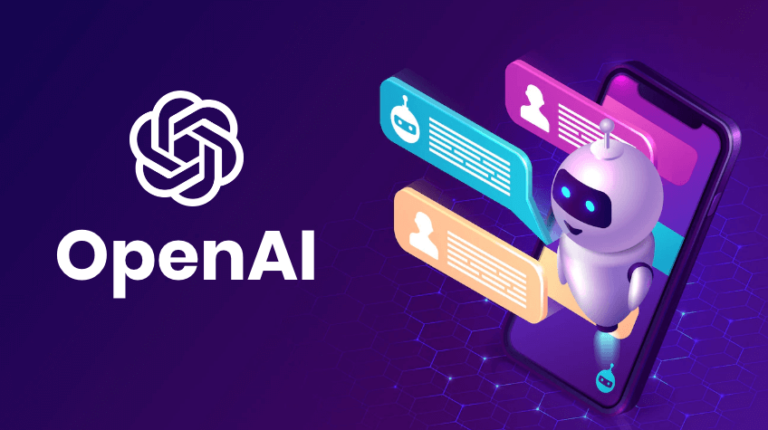FTC Probe Into OpenAI: Implications For ChatGPT And AI Development

Table of Contents
Data Privacy Concerns at the Heart of the FTC Investigation
The FTC's investigation into OpenAI likely centers on concerns about data privacy and whether OpenAI's practices comply with existing laws and regulations. The massive datasets used to train ChatGPT raise significant questions about the responsible collection and use of personal information.
Unauthorized Data Collection and Use
The FTC is likely scrutinizing whether OpenAI obtained proper consent for the vast amounts of data used to train ChatGPT. This includes:
- Concerns about data sourcing: The investigation will likely examine the origin of the data used to train the model, determining whether it was obtained legally and ethically. This includes assessing whether copyrighted material or personal data was used without permission.
- Violations of user privacy: The FTC will investigate whether ChatGPT collects and uses personal information without explicit user consent, potentially violating various privacy laws like CCPA and GDPR. This is particularly relevant given ChatGPT's ability to process and generate text based on user inputs.
- Bias in training data: The datasets used to train AI models often reflect existing societal biases. The FTC’s investigation will likely assess whether these biases are perpetuated in ChatGPT's output, leading to discriminatory or unfair outcomes.
The Challenge of Balancing Innovation with Data Protection
The FTC probe highlights the critical tension between promoting AI innovation and upholding individual privacy rights. The investigation’s outcome will heavily influence future regulatory frameworks for AI development.
- Balancing data needs with protection: Developing effective AI models requires substantial datasets, yet protecting individual privacy necessitates robust data safeguards. The FTC's investigation will explore how to achieve this delicate balance.
- Guidelines for data annotation and usage: Clear guidelines and best practices are needed for data annotation and usage in AI training. This will help minimize privacy risks and promote responsible AI practices.
- Stricter future regulations: The FTC’s actions could lead to stricter regulations on data collection and usage for AI development, potentially impacting the speed and scope of innovation.
Algorithmic Bias and Fairness Under Scrutiny
Another key aspect of the FTC investigation likely involves the assessment of algorithmic bias in ChatGPT and its potential to lead to unfair or discriminatory outcomes.
The Potential for Unfair or Discriminatory Outcomes
The FTC's probe will likely analyze whether ChatGPT's responses exhibit biases based on gender, race, or other protected characteristics.
- Identifying biased output: The investigation will focus on analyzing ChatGPT's output for evidence of bias, potentially through large-scale testing and analysis of its responses to various prompts.
- Evaluating bias mitigation efforts: OpenAI's efforts to mitigate bias during ChatGPT's training and deployment will be under scrutiny. The effectiveness of these mitigation strategies will be a key area of the investigation.
- Reinforcement of societal inequalities: The FTC will likely assess whether algorithmic bias in ChatGPT could inadvertently reinforce existing societal inequalities.
The Need for Transparency and Accountability in AI Development
The FTC investigation underscores the critical need for transparency and accountability in the development and deployment of AI systems.
- Mechanisms to address bias: Clear mechanisms for identifying and addressing algorithmic bias are essential. This requires ongoing monitoring, testing, and refinement of AI models.
- External audits and evaluations: Independent audits and evaluations of AI models are crucial to ensure fairness and prevent bias. The FTC’s probe might advocate for mandatory audits for large language models like ChatGPT.
- Industry best practices: Developing industry-wide best practices for responsible AI development and deployment is vital to mitigate risks and promote ethical AI.
The Broader Implications for the AI Industry
The FTC's probe into OpenAI will have far-reaching consequences for the entire AI industry, setting precedents for future regulations and increasing scrutiny of AI companies.
Setting Precedents for Future AI Regulation
The outcome of this investigation will likely influence how AI models are developed and regulated globally, potentially establishing new international standards.
- New regulations: The FTC's findings could lead to new regulations concerning data privacy, algorithmic fairness, and the overall development of AI systems.
- Impact on innovation and investment: The regulatory changes resulting from this investigation may affect the pace of AI innovation and investment in the sector.
- Emergence of new standards: The investigation may stimulate the creation of new industry standards and best practices for responsible AI development.
Increased Scrutiny of AI Companies
The OpenAI investigation serves as a clear warning to other AI companies, emphasizing the importance of proactive measures to ensure compliance.
- Robust data privacy and security measures: AI companies must prioritize robust data privacy and security measures to prevent data breaches and protect user information.
- Regular audits for bias and fairness: Regular audits for bias and fairness are necessary to ensure AI systems are developed and deployed responsibly.
- Transparency in data collection and model development: Transparency in data collection and model development is crucial for building trust and accountability in the AI industry.
Conclusion
The FTC probe into OpenAI's practices concerning ChatGPT has significant implications for the future of AI development. The investigation highlights crucial issues surrounding data privacy, algorithmic bias, and the need for responsible innovation. The outcome will likely shape regulations and industry practices, impacting how AI companies operate and the types of AI models that are developed. Understanding the implications of this FTC Probe into OpenAI is vital for anyone involved in or affected by the rapidly evolving field of artificial intelligence. Staying informed about the FTC's findings and subsequent regulatory changes will be critical for navigating the evolving legal and ethical landscape surrounding generative AI and its powerful applications. Proactive measures to address data privacy and algorithmic bias are essential for responsible AI development and ensuring the continued ethical use of AI technologies like ChatGPT.

Featured Posts
-
 Cornyns Doj Referral And Paxtons State Investigation Epic City Under Scrutiny
May 13, 2025
Cornyns Doj Referral And Paxtons State Investigation Epic City Under Scrutiny
May 13, 2025 -
 Analyzing Lara Croft Tomb Raider The Cradle Of Life A Critical Retrospective
May 13, 2025
Analyzing Lara Croft Tomb Raider The Cradle Of Life A Critical Retrospective
May 13, 2025 -
 Razvitie Gazosnabzheniya V Eao Uchastie V Programme Gazproma
May 13, 2025
Razvitie Gazosnabzheniya V Eao Uchastie V Programme Gazproma
May 13, 2025 -
 Nintendos Action Leads To Ryujinx Emulator Development Cease
May 13, 2025
Nintendos Action Leads To Ryujinx Emulator Development Cease
May 13, 2025 -
 Afstemning Aben Find Din Favorit I Dansk Melodi Grand Prix 2025
May 13, 2025
Afstemning Aben Find Din Favorit I Dansk Melodi Grand Prix 2025
May 13, 2025
